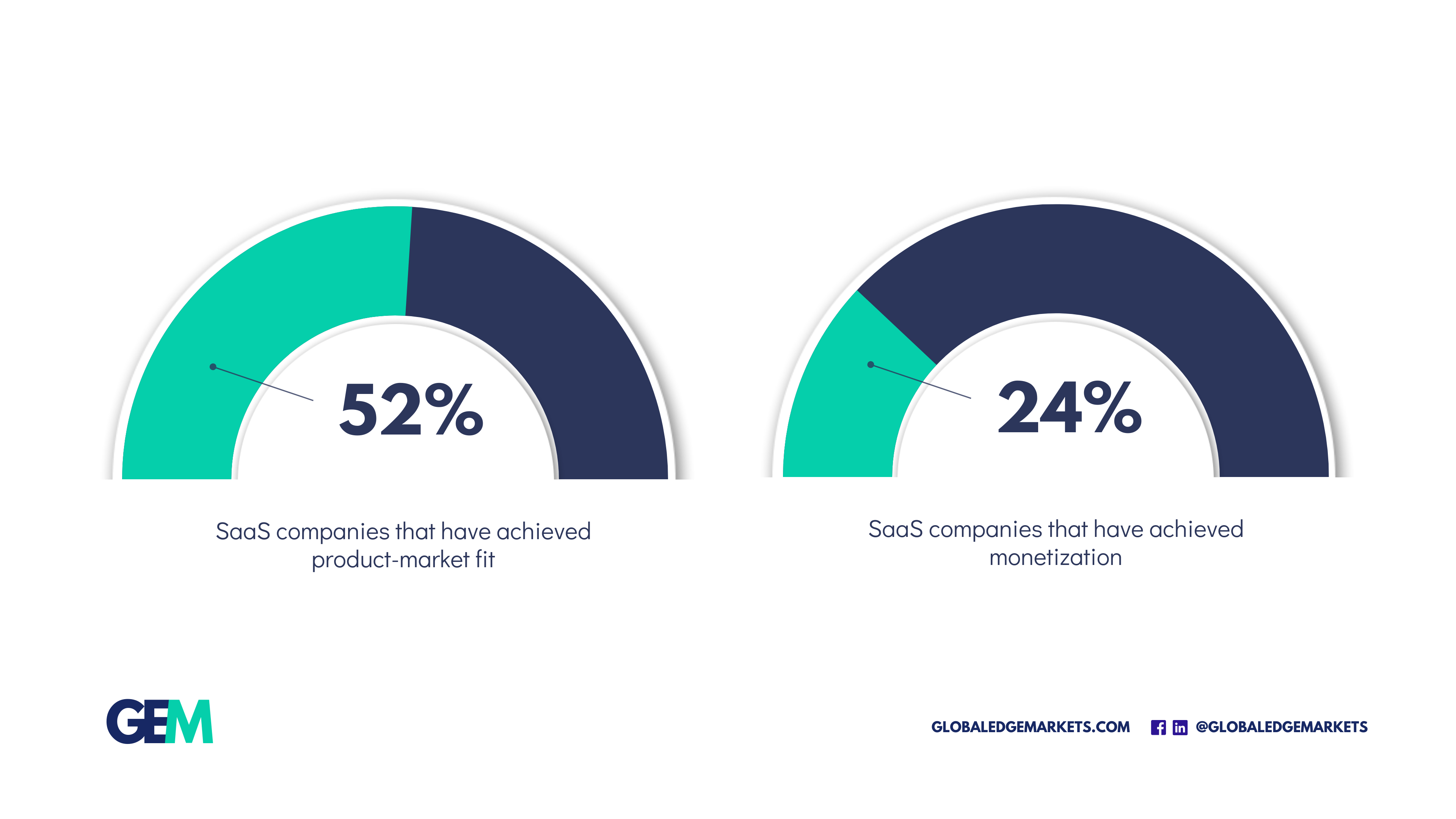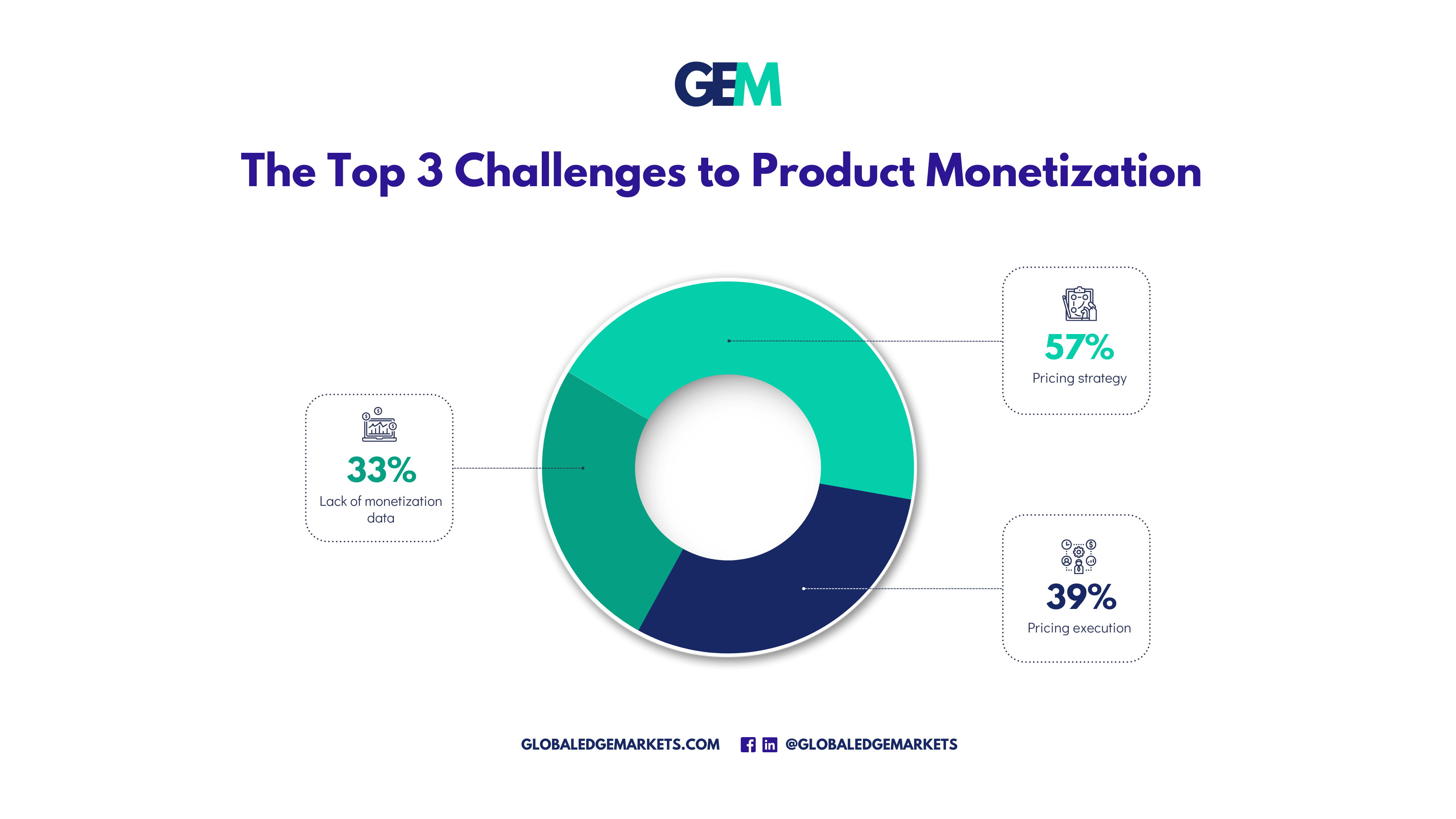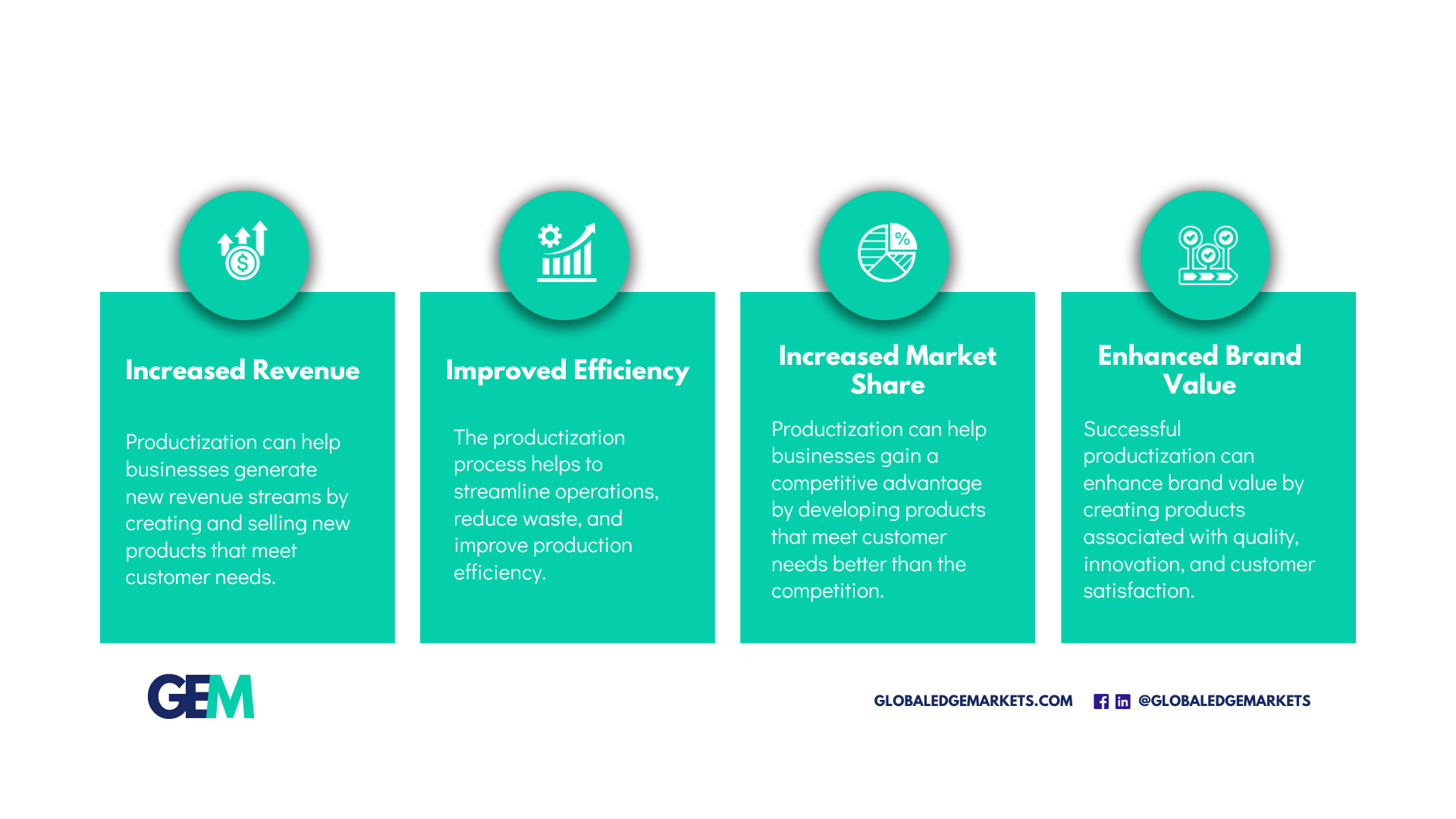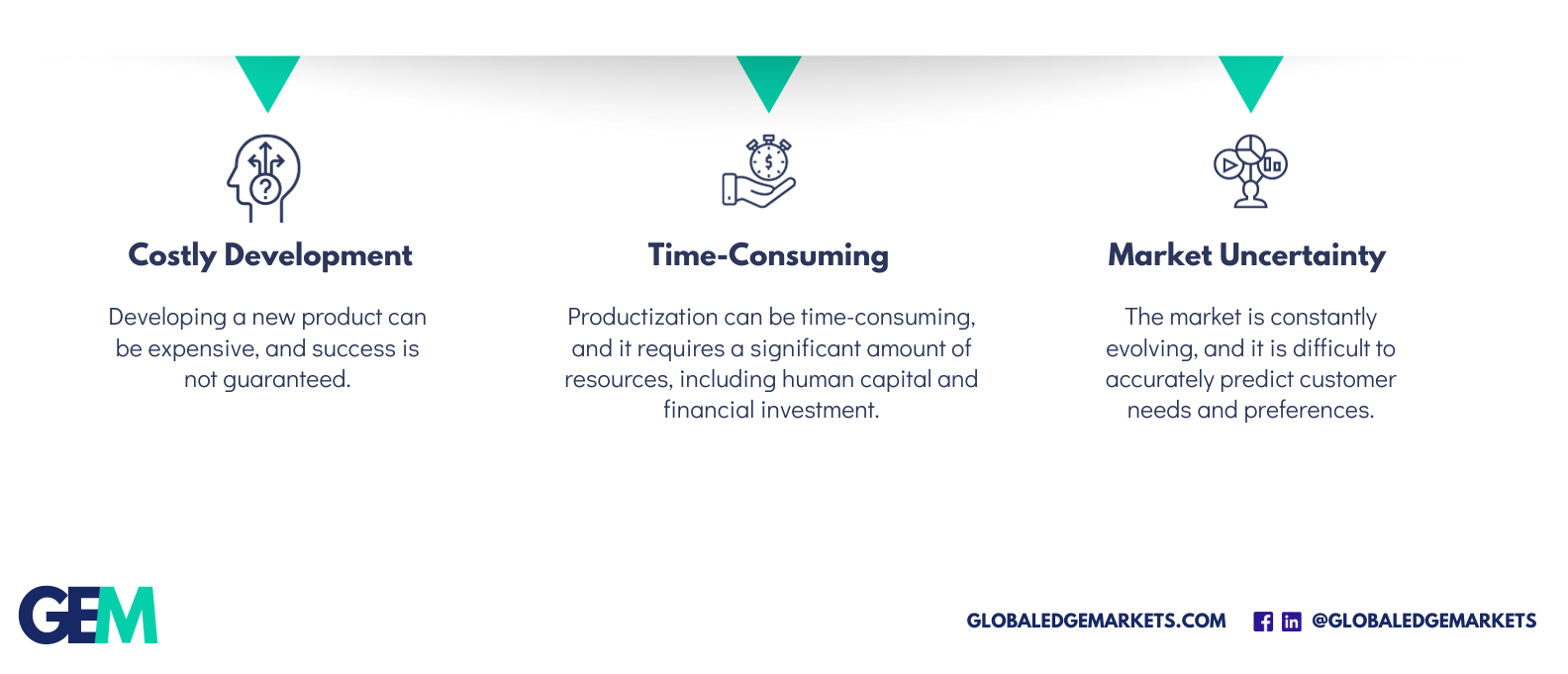Productization and Monetization
Enable users to build and maintain relationships across time and distance.
Streamlining the Journey from Concept to Commercialization
When you optimize a process, idea, skill, or service, you should always think about an alternative way to present it to the market – or produce it yourself. Productization involves taking a capability or service used internally or externally and developing it into a standard, tested, likely packaged, and hopefully marketed product. For example, a consulting or integration company might produce internal tools in project management or process controls to create a product or a platform based on their knowledge, workflows, interactions, and automation algorithms. Productization should not be confused with production or manufacturing, however.

If you are ready to turn a non-revenue-generating idea or process into hard currency (fiat or tokenized), you are ready to monetize. In many cases, monetization looks to novel methods of creating income from new sources; for instance, this can be embedding ad revenues inside social media video clips to pay content creators or adding subscription services to a capability that was never sold for a fee or was ever valued with a particular monetary value in mind.
The Productization Process
The productization process begins with the identification of an idea, solution, or service that has the potential to meet the needs of a particular market. The next step is to develop a prototype or minimum viable product (MVP) that can be tested and refined based on customer feedback. Once the MVP has been created, the productization process involves the following stages:
1. Defining Product Features
At this stage, the product features are determined based on customer requirements, competitive analysis, and industry trends. The features should align with the company’s vision and mission.
2. Developing Pricing Models
Pricing is a critical element of productization and should be based on the product’s perceived value to the customer. The pricing model should consider factors such as production costs, market demand, and competition.
3. Creating Marketing Strategies
Marketing is essential for creating awareness and generating demand for the product. The marketing strategy should be based on the target audience, the product’s unique selling proposition (USP), and the distribution channels.
4. Establishing Distribution Channels
Distribution channels are how the product is delivered to the customer. The distribution channels should be selected based on the target market, product type, and the company’s resources.
5. Executing Launch and Deployment
This is when the product is released to the market. The product team performs final testing, finalizes packaging, and creates marketing materials. This step also involves coordinating with the production team to ensure timely delivery to distributors and retailers.
6. Scaling Up
Scaling up involves increasing production, expanding distribution channels, and improving product features and customer satisfaction based on customer feedback. The goal is to achieve sustainable growth and profitability.
What we do
These three areas work together to ensure that a product is developed and delivered in a way that meets the needs of customers, achieves the goals of the business, and supports long-term success.
A well-executed launch and deployment strategy can help establish a new product in the market and create a buzz around it, leading to increased sales and profitability.
By continuously improving products to meet customer needs, companies can drive business success, increase customer satisfaction, and maintain a competitive edge in the market.
By leveraging these strategies, businesses can create more valuable products, increase customer engagement, and achieve long-term profitability.

If you want your business to thrive, make innovation a priority. Download our white paper to read more about innovation, from its historical roots to current trends to strategy implementation.
The success of a productization effort can depend on several factors, including the target market, competition, the unique features and benefits offered, and the resources and processes used to bring the product to market.
However, some general statistics on product development and commercialization may be useful in understanding the overall landscape. For example:

Benefits of Productization
Researchers have studied productization extensively, and a growing body of evidence supports the idea that productization is essential for business success. There are several benefits productization offers, including:

Productization and Monetization
The productization process also presents several challenges, including:

Productization is a crucial process that helps businesses turn ideas, services, or solutions into successful and profitable products. Successful productization ultimately requires a deep understanding of the market, customer needs, and a willingness to invest resources and take risks.
Explore Productization And Monetization with Alex Romanovich and Propel Your Business Forward
Discover how Alex Romanovich’s unparalleled expertise in Productization And Monetization can transform your business. Schedule a consultation with Alex or engage the GlobalEdgeMarkets team today to unlock new growth opportunities!
- At GlobalEdgeMarkets, under the leadership of founder and CEO Alex Romanovich, we specialize in transforming your business challenges into opportunities for growth. With a rich background that spans across key roles at major corporations such as IBM, Silicon Graphics, and BertelsmannAG, Alex brings a wealth of experience in international business development, management consulting, and product management. His expertise is particularly strong in digital transformation and AI, areas where he has driven substantial business advancements through innovative strategies and cutting-edge technologies.
- Alex Romanovich combines deep industry insights with a mastery of the digital landscape to deliver visionary yet practical business solutions. Under his leadership, GlobalEdgeMarkets excels in driving global market expansions, advanced digital marketing, and AI-driven processes, offering strategies customized for each client’s unique needs. His active roles in prestigious groups like the Forbes Business Council and Club CMO highlight his commitment to excellence and continuous growth, directly contributing to the transformative success of our clients.
- By partnering with Alex Romanovich, you gain access to a proven leader whose strategies have consistently resulted in significant revenue growth and operational improvements across diverse sectors, including Healthcare, Financial Services, and Media. Let Alex and the GlobalEdgeMarkets team help you navigate the complexities of the modern business environment with strategies that are designed to leverage your core strengths and propel you towards sustainable success.
Why choose us
Explore our case studies

Panorama Travel
About Industry: Travel Panorama Travel is a full-service travel company that has been operating since 1990, helping travelers around the world make their vacation dreams come true. They specialize in

Pond Mobile
About PondMobile, a global MVNO (Mobile Virtual Network Operator), initially engaged Social2B to better manage social media channels. And with the rise of Instagram (prior to Facebook purchase), PondMobile wanted

Truxx.ai
About Industry: Logistics Truxx.ai is a technology company that offers a personalized, integrated trucking business management platform for truckers and owners. Founded in 2022, Truxx.ai connects drivers and brokers to
from our blog
Related Posts

The Importance of Diversifying Your Monetization Strategies
Diversification is a strategy that many successful businesses use to mitigate risk and maximize growth potential. This strategy is equally important when it comes to monetizing your business. In this

Social Referrals: The Value of Digital Friendship
Last week here at GlobalEdgeMarkets, we discussed the functionality of social media marketing especially the idea of social referrals. We gave the example of a list of 10,000 consumers that

The Key to Productization for Mid-Sized Companies
Productization is the process of transforming a service-based company into a product-based one. This can be a powerful strategy for middle-sized companies that want to scale their businesses and increase




